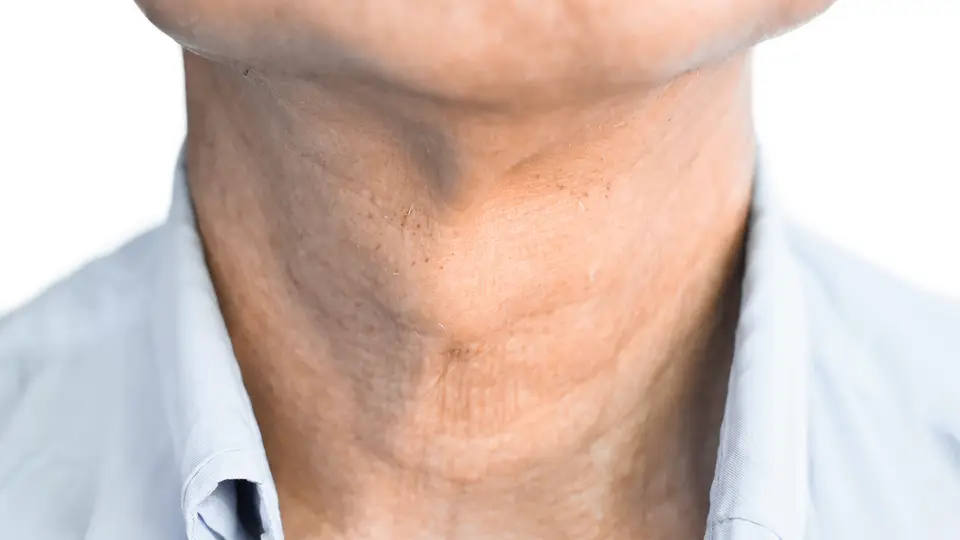Hypothyroidism is a common endocrine disorder that affects millions of people worldwide. It occurs when the thyroid gland fails to produce enough thyroid hormones to meet the body’s needs. These hormones play a crucial role in regulating various bodily functions, including metabolism, energy production, and maintaining overall health. Hypothyroidism can lead to a range of symptoms and health issues if left untreated, but with proper diagnosis and management, most individuals can lead healthy and fulfilling lives.
Understanding the Thyroid Gland
Before delving into hypothyroidism, it’s essential to understand the role of the thyroid gland in the body. The thyroid is a small, butterfly-shaped gland located in the lower part of the neck, just below the Adam’s apple. Despite its small size, it plays a significant role in maintaining overall health by producing thyroid hormones: thyroxine (T4) and triiodothyronine (T3).
These hormones are essential for regulating the body’s metabolism, energy levels, heart rate, body temperature, and many other vital processes. They also play a crucial role in the proper functioning of the brain, muscles, and various organs.
Causes of Hypothyroidism
Hypothyroidism can be caused by various factors, and the specific cause may vary from person to person. Some of the most common causes include:
- Hashimoto’s Thyroiditis: This is an autoimmune disorder in which the body’s immune system mistakenly attacks the thyroid gland, leading to inflammation and damage. Hashimoto’s thyroiditis is the most common cause of hypothyroidism in many parts of the world.
- Iodine Deficiency: The thyroid gland needs iodine to produce thyroid hormones. A lack of sufficient iodine in the diet can lead to an underactive thyroid.
- Congenital Hypothyroidism: Some babies are born with an underactive thyroid gland due to a genetic defect or improper development during fetal growth.
- Thyroid Surgery or Radioactive Iodine Therapy: Surgical removal of the thyroid gland or treatment with radioactive iodine for certain thyroid conditions can result in hypothyroidism.
- Certain Medications: Some medications, such as lithium, interferon-alpha, and amiodarone, can interfere with thyroid hormone production and lead to hypothyroidism.
- Pituitary Gland Dysfunction: The pituitary gland produces thyroid-stimulating hormone (TSH), which signals the thyroid gland to produce thyroid hormones. If the pituitary gland doesn’t function properly, it can lead to low TSH levels and subsequently reduce thyroid hormone production.
Symptoms of Hypothyroidism
The symptoms of hypothyroidism can vary widely in severity and may develop gradually over time, making them easy to overlook or attribute to other causes. Some common symptoms include:
- Fatigue and Weakness: Feeling tired, lethargic, and weak, even after sufficient rest, is a hallmark symptom of hypothyroidism.
- Weight Gain: Unexplained weight gain or difficulty losing weight despite following a healthy diet and exercise regimen may be a sign of an underactive thyroid.
- Cold Sensitivity: Individuals with hypothyroidism often feel unusually sensitive to cold temperatures.
- Dry Skin and Hair: Reduced thyroid hormone levels can lead to dry, coarse skin and brittle hair.
- Muscle and Joint Pain: Hypothyroidism can cause muscle aches, stiffness, and joint pain.
- Constipation: Sluggish digestion and constipation are common gastrointestinal symptoms of hypothyroidism.
- Depression and Mood Swings: Hypothyroidism can affect mental health, leading to mood swings, depression, or anxiety.
- Irregular Menstrual Periods: Women with hypothyroidism may experience irregular or heavy menstrual periods.
- Impaired Memory and Concentration: Some individuals may experience difficulties with memory, concentration, and cognitive function.
It’s crucial to note that these symptoms can also be associated with other medical conditions, so a proper medical evaluation is necessary to confirm a diagnosis.
Diagnosis of Hypothyroidism
If hypothyroidism is suspected, a healthcare professional will perform a thorough evaluation, including:
- Medical History: The doctor will inquire about the patient’s symptoms, medical history, and family history of thyroid disorders.
- Physical Examination: The thyroid gland will be examined for enlargement or tenderness.
- Blood Tests: Blood tests will measure the levels of thyroid hormones (T3 and T4) and thyroid-stimulating hormone (TSH) in the blood. Elevated TSH levels and low T4 levels indicate hypothyroidism.
- Imaging Tests: In some cases, imaging tests like ultrasound or thyroid scans may be ordered to assess the size and structure of the thyroid gland.
Treatment of Hypothyroidism
Hypothyroidism is generally treatable and manageable with appropriate medical intervention. The most common treatment is hormone replacement therapy, typically involving the synthetic thyroid hormone levothyroxine. This medication aims to restore thyroid hormone levels to normal and alleviate symptoms. The dosage of levothyroxine may need adjustment over time, based on the patient’s response and periodic blood tests to monitor hormone levels.
Lifestyle adjustments can also play a role in managing hypothyroidism effectively:
- Balanced Diet: Ensuring a diet rich in iodine, selenium, zinc, and other essential nutrients supports thyroid function.
- Regular Exercise: Engaging in regular physical activity can help boost metabolism and improve overall well-being.
- Stress Management: Chronic stress can negatively impact thyroid function, so stress-reduction techniques like meditation and yoga may be beneficial.
- Avoiding Goitrogens: Some foods, known as goitrogens, can interfere with thyroid function and should be consumed in moderation. These include certain cruciferous vegetables like broccoli, cabbage, and cauliflower.
Conclusion
Hypothyroidism is a common endocrine disorder that affects the thyroid gland’s ability to produce sufficient thyroid hormones. It can lead to a range of symptoms, from fatigue and weight gain to dry skin and depression. However, with proper diagnosis and treatment, individuals with hypothyroidism can lead healthy and fulfilling lives.
If you suspect you may have hypothyroidism or are experiencing symptoms associated with an underactive thyroid, it’s essential to seek medical attention promptly. A healthcare professional can conduct the necessary tests to diagnose the condition accurately and develop a suitable treatment plan to manage it effectively. Early detection and treatment can make a significant difference in improving the quality of life for those living with hypothyroidism.

